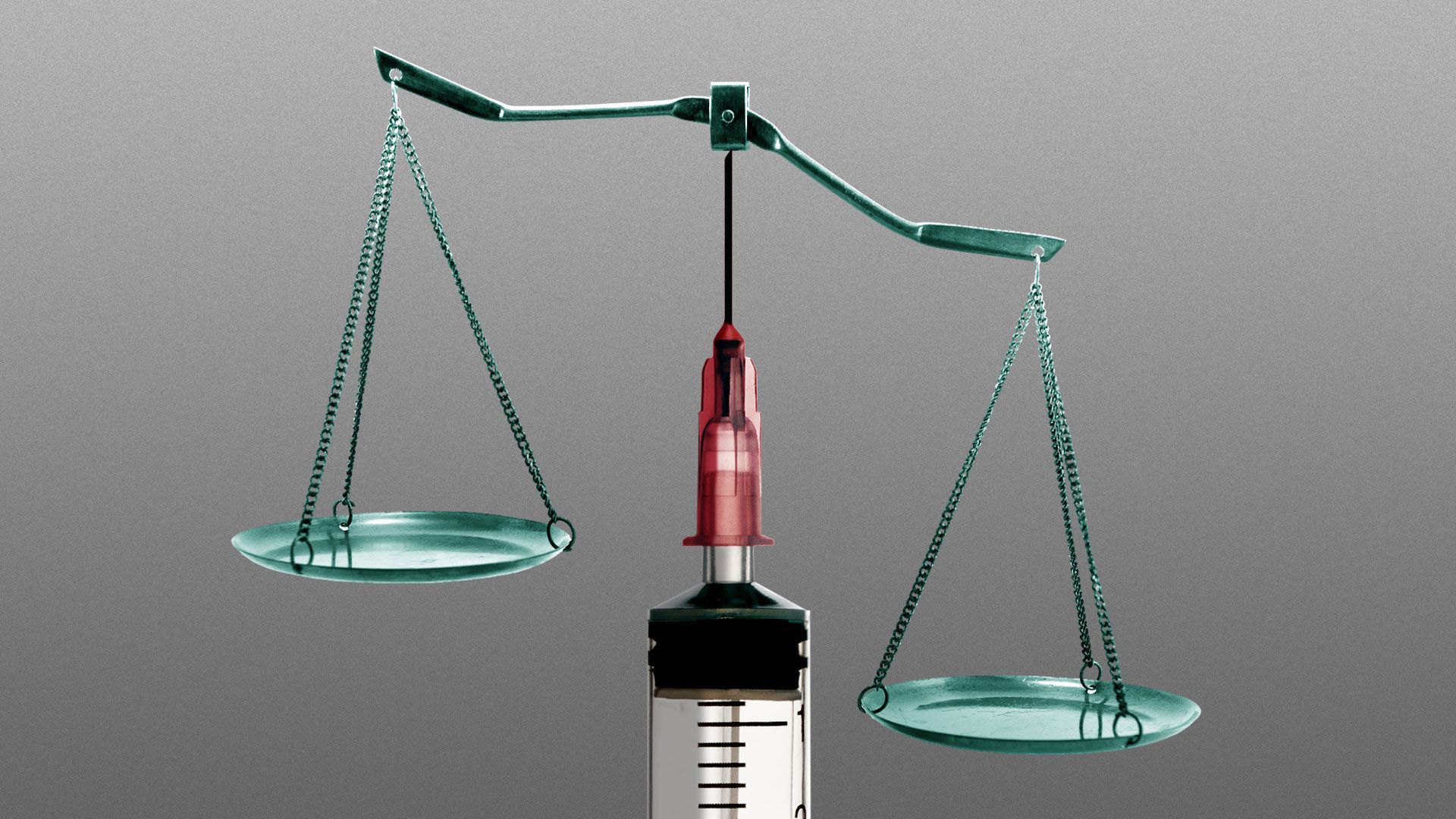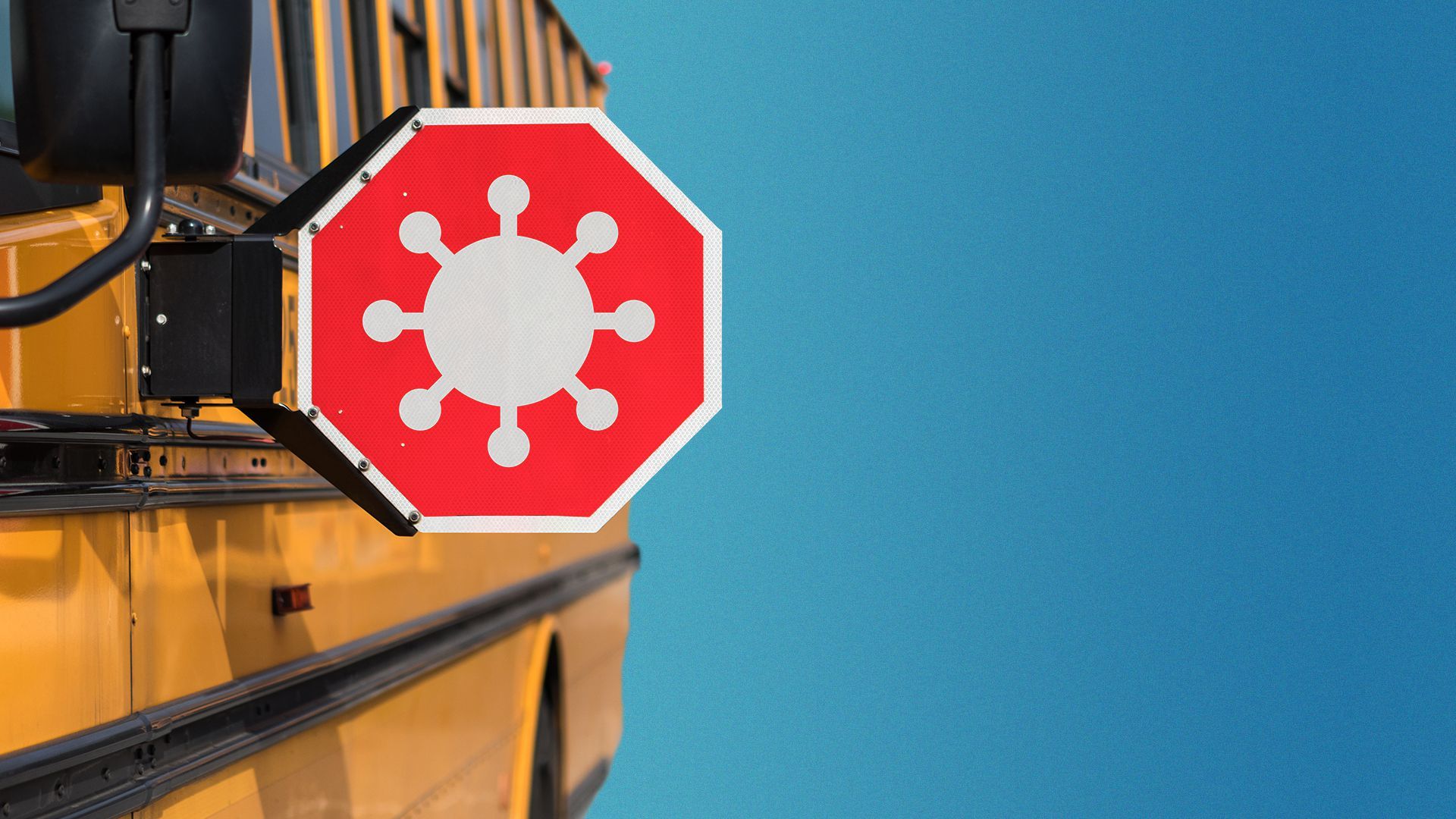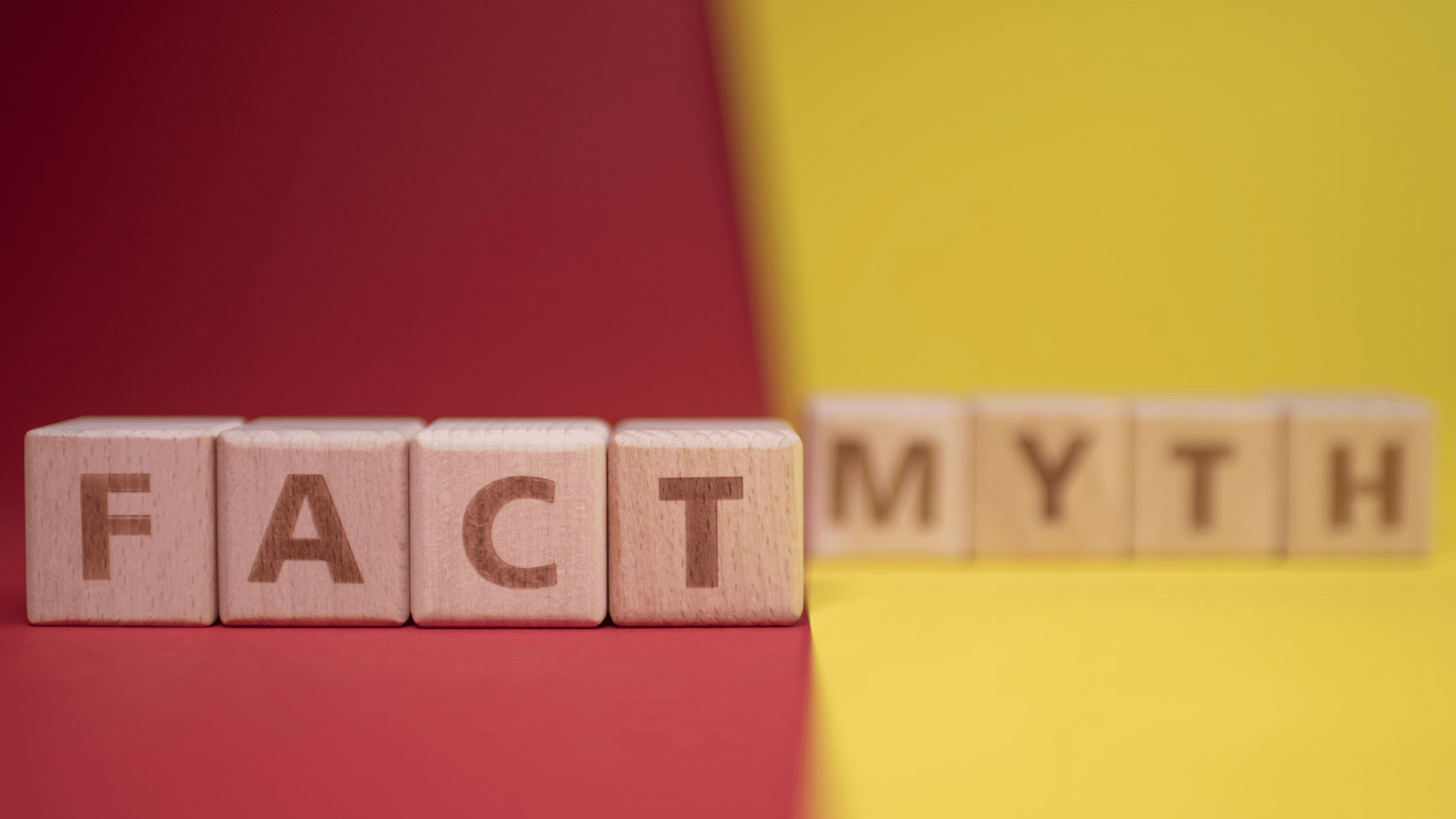| |
| |
| |
| Presented By PhRMA |
| |
| Axios Vitals |
| By Tina Reed ·Sep 20, 2021 |
| 😙 Welcome back from the weekend, Vitals readers. Today's newsletter is 972 words or a 4-minute read. Situational awareness: The White House will host its global COVID-19 summit Wednesday. |
| |
| |
| 1 big thing: The booster discussion is far from over |
 |
|
| Illustration: Sarah Grillo/Axios |
| |
| The messy process of figuring out exactly who should get another shot of the vaccine — and when — has likely just begun, Axios' Caitlin Owens writes. Why it matters: Many vaccinated Americans are worried about their level of protection as the pandemic rages. The piecemeal booster decision-making process may be the best way to keep pace with the science, but is at risk of becoming extremely confusing. Driving the news: An FDA advisory committee on Friday recommended boosters for adults who originally received the Pfizer vaccine and are 65 and older, at high risk of severe COVID, or work in high-risk occupations. - It did so only after first rejecting the administration's proposal of offering boosters to most adults.
- The FDA will now decide whether to follow the committee's recommendations, which it usually does.
Yes, but: A CDC advisory committee may soon offer more clarity about who qualifies. - "The FDA committee first voted against offering booster to everyone, and then voted for offering booster to almost everyone," tweeted Walid Gellad, a University of Pittsburgh professor.
Between the lines: "I think the vast majority of those who would want to get the third dose will still be able to get it through this outcome, even if it's not exactly what the White House had in mind," Jason Schwartz, a Yale School of Public Health professor, told me. - "Communication and messaging will be a challenge compared to a scenario where everyone could just get a vaccine. And implementation will be a challenge because it's not just everyone who's getting a vaccine. So there's still miles to go here," he added.
Go deeper. |
    |
| |
| |
| 2. Pfizer releases child safety data |
 |
|
| Photo: Mario Tama/Getty Images |
| |
| Pfizer and BioNTech's coronavirus vaccine is safe and effective in children ages 5 to 11, albeit at a lower dose than adults receive, the companies said in a press release this morning announcing results from a pediatric trial, Caitlin writes. Why it matters: The trial results are a much-needed source of hope for families with elementary school-aged children who aren't eligible for a vaccine. What they found: Children given two doses of the vaccine 21 days apart had comparable antibody responses to people ages 16 to 25 who participated in an earlier trial. - The younger children received doses that were a third the size of those administered to people 12 and older.
- Vaccine side effects were also comparable to trial participants who were 16- to 25-years-old.
- The data has not yet been submitted for peer review.
What's next: The companies said they "expect to include the data in a near-term submission" to the FDA for emergency authorization. |
    |
| |
| |
| 3. More schools turn to testing |
 |
|
| Illustration: Brendan Lynch/Axios |
| |
| After tens of thousands of kids were sent home to isolate due to COVID-19 exposure in the first days of in-person schooling, more districts are starting to pivot toward a "test-to-stay" strategy, the New York Times reports. What's happening: Many schools are largely using a contact tracing method in which close contacts of someone who tests positive for the virus must isolate at home. - But a new study from The Lancet found about 2% of school-based close contacts ultimately tested positive for the virus, meaning schools were keeping 49 uninfected students out of class every time one student tested positive, per the Times.
- That same study suggests a "test-to-stay approach" — or allowing asymptomatic kids who test negative for the virus to stay in school — can be safe, per the Times.
Why it matters: The consensus largely supports the importance of in-person schooling for kids. - But schools are searching for a less disruptive way to minimize risk beyond sending kids home.
What they're saying: "At this time, we do not recommend or endorse a test-to-stay program," the CDC told the Times. "However, we are working with multiple jurisdictions who have chosen to use these approaches to gather more information." |
    |
| |
| |
| A message from PhRMA |
| Why Americans reject "so-called" Medicare negotiation |
| |
 |
| |
| Proponents of government price setting often misrepresent voter opinion on support for allowing the government to negotiate drug prices. Independent polls have repeatedly shown once Americans understand what government negotiation is, and what the tradeoffs are, support evaporates. |
| |
| |
| 4. Voters' top health care priorities |
| Seven in 10 voters — no matter their political, geographic or demographic background — say cost is their biggest concern regarding health care, according to a poll from liberal advocacy group United States of Care. "Everyone starts from cost," said Ryan Sims, a USoC spokesman. "When we talk about home care, people relate to cost. When we talk about insurance premiums, they relate to cost. Drug prices? It's obviously cost." The details: The poll of 1,500 voters between July 27 and Aug. 2 found several areas of agreement. - 90% of Democrats, 86% of Republicans and 76% of independents somewhat or strongly support the idea of the government negotiating prices or increasing competition among drugmakers.
- 87% of Democrats, 60% of Republicans and 70% of independents somewhat or strongly support expanding eligibility for Medicare, Medicaid or the Child Health Insurance Program.
The bottom line: "When you put solutions in front of people and it isn't shown as a solution based on a politic or a party, there really is broad agreement," said Natalie Davis, CEO and co-founder of USoC. |
    |
| |
| |
| 5. How maps could improve disaster response |
 |
|
| Illustration: Shoshana Gordon/Axios |
| |
| An increase in extreme weather incidents is spurring calls for better public health mapping to identify and assist people at risk from environmental disasters, Axios' Marisa Fernandez writes. Why it matters: People of color, especially Black Americans, have been disproportionately affected by environmental hazards and are more likely to die of environmental causes now and in the future. What's happening: With a state- or countywide mapping system, emergency services like fire and EMT workers or social workers can knock on doors to check on at-risk residents and target warning messages ahead of evacuations or anticipated dangerous weather. Deep Dive: Race and the environment in America |
    |
| |
| |
| 6. What we're reading |
 |
|
| Illustration: Annelise Capossela/Axios |
| |
- It's not just you. All of our work weeks have really gotten longer during the pandemic. (Axios)
- A once-in-a-decade chance to overhaul health care gets personal for Democrats and advocates (Washington Post)
- HHS issues new protections for Texas abortion providers, patients (Axios)
|
    |
| |
| |
| A message from PhRMA |
| Myth vs. fact: Americans and Medicare negotiation |
| |
 |
| |
| Key numbers: - 65% of Americans (KFF) oppose negotiation if it leads to less research and development of new treatments or if it limits people's access to medicines once they come to market.
- 76% oppose H.R. 3-type "negotiation" if it causes delays in access to new medicines.
Get the facts. |
| |
 | | It'll help you deliver employee communications more effectively. | | |










No comments:
Post a Comment